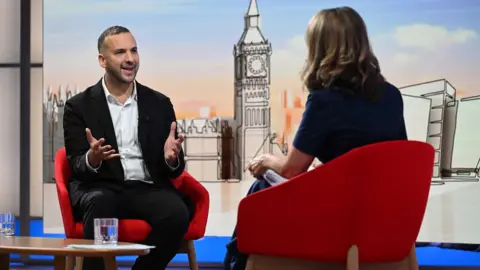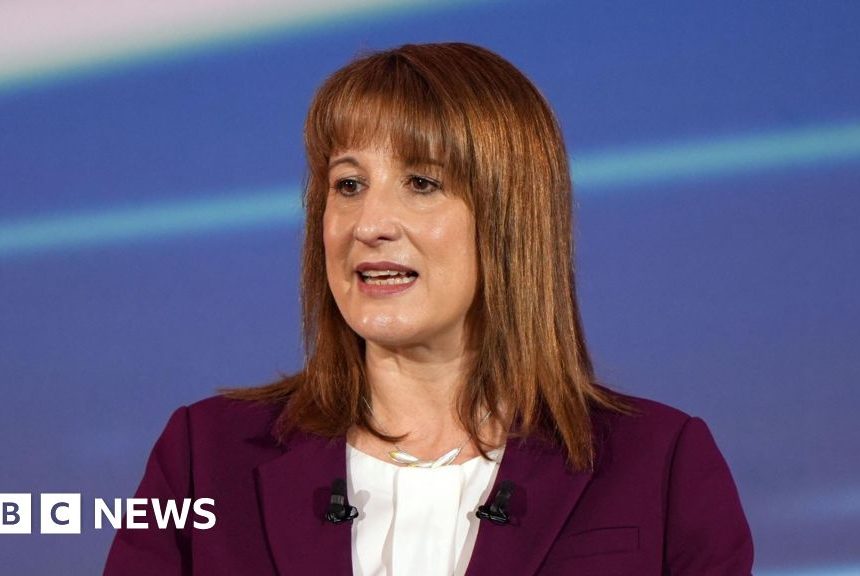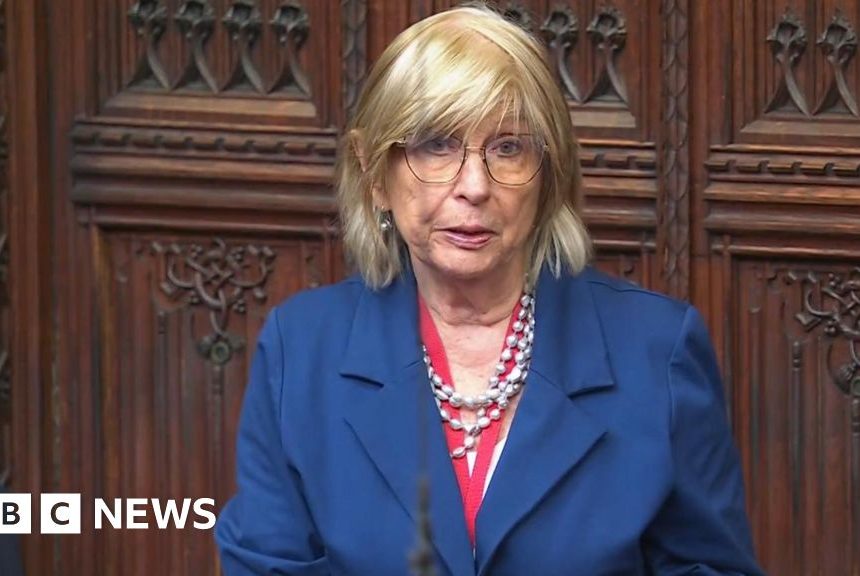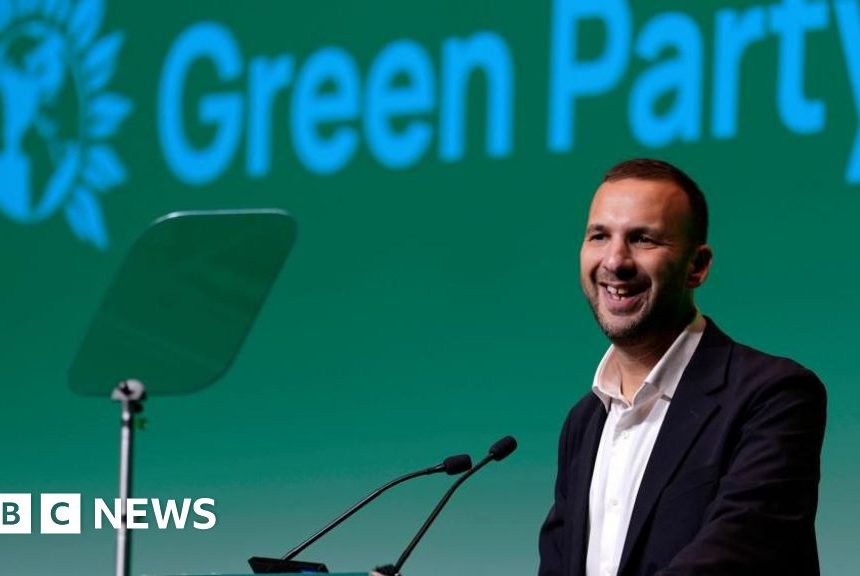Becky MortonPolitical reporter
 Jeff Overs/BBC
Jeff Overs/BBCGreen Party leader Zack Polanski has defended his party’s proposals for a wealth tax as “tackling the deep inequality in our society”.
He told the BBC that at a time when people are “really struggling” it was right to focus on the “super wealthy”.
In its general election manifesto last year, the Green Party of England and Wales proposed an annual tax of 1% on assets above £10m and 2% on assets above £1bn.
Critics of the idea have said such a tax would penalise savings and investment, while arguing it could encourage wealthy individuals to leave the country.
In an interview with the BBC’s Sunday with Laura Kuenssberg programme, Polanski suggested a wealth tax could raise between £15bn and £25bn a year.
Challenged that other countries which have implemented similar proposals have found they raised much smaller sums, he said: “Whatever you’re going to create from a wealth tax, it’s ultimately about reducing inequality.
“This isn’t about creating public investment, we can do that anyway, we don’t need to tax the wealthy to do that. This is ultimately about tackling the deep inequality in our society.”
However, he admitted the idea was not even “close to a panacea” and said capital gains tax – which is charged on profits made from the sale of an asset such as a second home or shares – also needed to brought in line with income tax.
“We need to tax unearned wealth as much as we tax earned income,” he added.
Pressed over whether lower and middle-income earners would also have to contribute more for better public services, Polanski insisted the focus at the moment should be on the wealthiest.
But he added: “Once we start to move to a better footing as a society, where we have better public infrastructure and services, then I think it is legitimate to say paying tax is something that’s actually patriotic, we should be proud of contributing to this country, to making sure we have an NHS that works, that we have public transport that works.
“And, yes, everyone will have to pay for that, but ultimately this is about where is the biggest burden, and that should be on the people with the broadest shoulders.”
Polanski was also asked about his position on Nato, after previously suggesting the UK should leave the military alliance.
He told the BBC he did not support withdrawing from Nato “immediately” as “the world is in political turmoil, and we need to make sure our country is defended”.
However, he added: “Once we’ve created an alternative alliance with our European neighbours, we should absolutely be looking at a different way that is focused on peace and diplomacy, rather than on nuclear weapons.”
Polanski was elected as leader of the Green Party of England and Wales last month, beating his opponents, MPs Adrian Ramsay and Ellie Chowns, by a huge margin.
He campaigned on a platform of “eco-populism”, arguing the party needed to be bolder and more radical in its approach.
The party says its membership has surged by 80% since he took over as leader and now stands at more than 126,000.
Polanski said the figures reflected “growing public frustration with the political status quo and a hunger for genuine alternatives”.
The party – which won a record four MPs at last year’s general election – claims its membership has now overtaken the Conservatives.
The Conservatives do not routinely publish their membership figures.
Some 131,680 members were eligible to vote in last year’s Tory leadership election but reports suggest the party’s membership has fallen to around 123,000 since then.
Labour, which is the largest political party in the UK on current publicly available figures, has seen its membership drop to 333,235 at the end of last year.
Reform UK did not give a figure for membership in its annual accounts last year, but a ticker on its website says it has more than 260,000 members.
Meanwhile, the number of Liberal Democrat members has almost halved in the last five years to 60,000.




